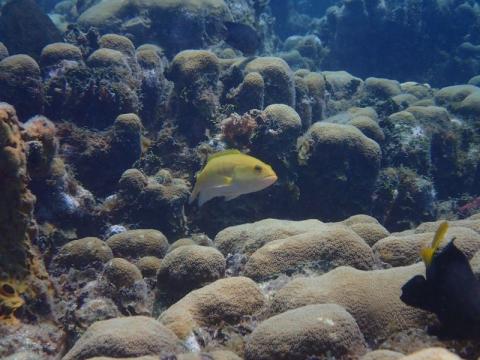Coral formations
Coral formations are biogenic marine structures shaped by hermatypic organisms and associated geomorphological and ecological processes. Colombia has a total extension of 4,405 km2 of coral areas, mainly in the Caribbean and to a lesser extent in the Pacific. These formations are conditioned by specific environmental requirements, such as adequate light, temperature and salinity, although recent findings have demonstrated the survival capacity of corals in conditions considered unfavorable.
Technological advances in marine research have made it possible to explore deeper areas, where evidence has been found of corals capable of forming structures, which has led to the declaration of the Corales de Profundidad National Natural Park and the study of other areas with deep coral formations.
Coral reefs provide food for consumption and trade, raw materials for construction and material culture, and are vital for the subsistence of fishing communities. They also regulate coastal erosion, protecting coasts from environmental risks, and contribute to tourism, recreation and social cohesion of local communities.
Source: Evaluación nacional de biodiversidad y servicios ecosistémicos de Colombia

